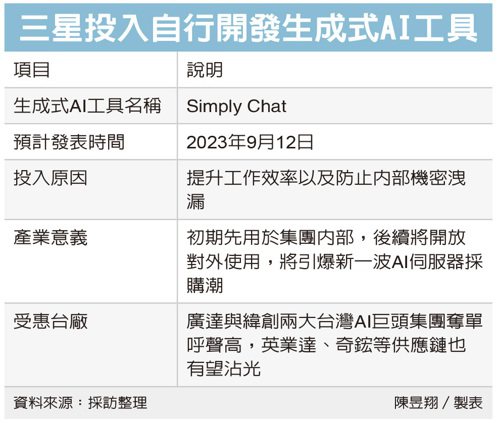
8-31 #Merdeka : Apple will receive all of TSMC’s first-generation 3nm process chips in 2023; Google is reportedly partnering with Garmin to bring emergency SOS via satellite to Android phones; Samsung is expected to reveal SimplyChat; etc.

Apple will receive all of TSMC’s first-generation 3nm process chips in 2023 for upcoming iPhones, Macs, and iPads, according to Digitimes. As early as May 2023, Apple was known to have booked nearly 90% of the Taiwanese pure-play foundry for its upcoming next-gen devices. However, Apple is now projected to take 100% of TSMC’s capacity in 2023, due to delays in Intel’s wafer needs owing to later modifications to the company’s CPU platform design plans. TSMC’s 3nm process output may be reduced to 50,000-60,000 wafers monthly in 4Q23, down from the 80,000-100,000 units previously anticipated, due to a cutback in Apple’s orders. The current monthly output of TSMC’s 3nm process is estimated at approximately 65,000 wafers. Apple’s upcoming iPhone 15 Pro models are expected to feature the A17 Bionic processor, Apple’s first iPhone chip based on TSMC’s first-generation 3nm process, also known as N3B. Apple’s M3 chip for Macs and iPads is also expected to use the 3nm process. The first M3 devices are expected to include an updated 13” MacBook Air and 24-inch iMac, both of which could arrive as early as Oct 2023. (CN Beta, 9to5Mac, MacRumors, Digitimes, Digitimes, LTN)
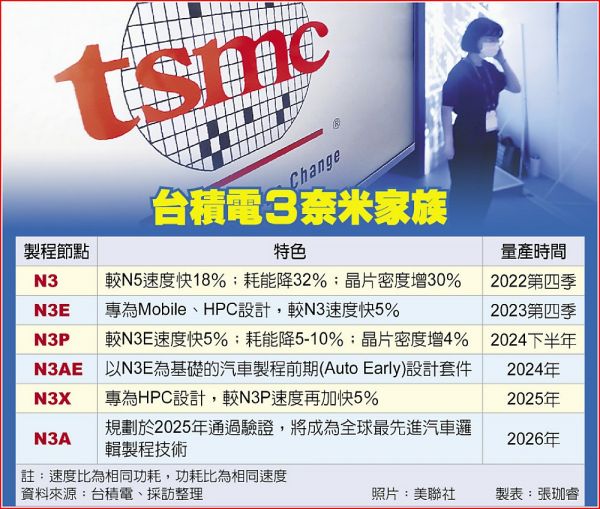
Google’s fifth-generation custom tensor processor (TPU) chip TPU v5e is used for large model training and inference, and the speed of training and running AI models is increased by 5 times. TPU v5e provides 2x better training performance per dollar and 2.5x better inference performance per dollar. Google Cloud describes TPU v5e as a “supercomputer” that allows up to 256 chip interconnections, a total bandwidth of more than 400 Tb/s, and supports eight different virtual machine configurations. Customers can choose the appropriate configuration to serve various large language models and generative AI models. 5x faster when training and running AI models on TPU v5e, according to speed benchmarks.(CN Beta, Google Cloud, Silicon Angle, Data Center Dynamics, Reuters)
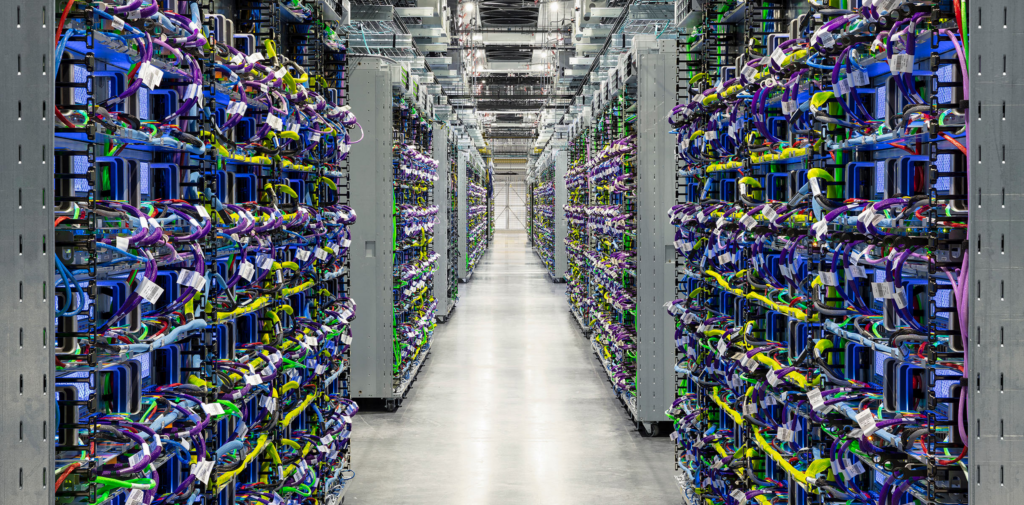
Samsung Electronics’ new mobile application processor (AP), the Exynos 2400, is highly likely to be integrated into its upcoming flagship smartphone, the Galaxy S24, a new opportunity for the company’s semiconductor division to increase sales and for the mobile business to bolster its price competitiveness. Samsung Electronics is strongly considering using the Exynos 2400 in a high proportion of Galaxy S24 models in Korea and Europe. The non-Exynos models will be powered instead by Qualcomm’s third-generation Snapdragon 8 instead. Support from Samsung Foundry is another pivotal factor driving the resurgence of the Exynos line. The Exynos 2400 is manufactured using Samsung Foundry’s 4nm process, which has recently witnessed a rapid improvement in yield rates, reaching up to 75%. This positions Samsung Foundry on par with its industry counterpart, TSMC.(CN Beta, WCCFTech, Pulse News, GSM Arena, Twitter)
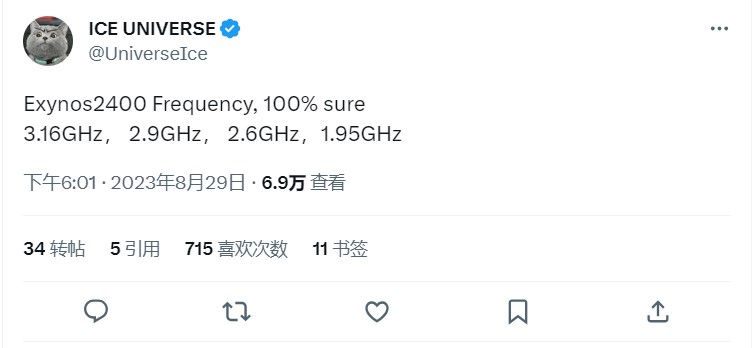
Intel announced the 2023-2025 Xeon platform roadmap, announcing for the first time the code names, processes and preliminary designs of the next four major new products. Intel has further detailed its next-gen Xeon Data Center CPU lineup for 2024 which will include Granite Rapids & Sierra Forest. Emerald Rapids processors will be released in 4Q23, Sierra Forest processors in 2024, Granite Rapids processors in 2024, and Clearwater Forest processors in 2025. Intel claims the next-gen Xeon Sierra Forest’s E-Core-based design will provide up to 2.5x better rack density and 2.4x higher performance per watt than its fourth-gen Xeon chips, while the P-Core powered Granite Rapids will provide 2 to 3x the performance in mixed AI workloads, partially stemming from an ‘up to’ 2.8X improvement in memory bandwidth.(CN Beta, WCCFTech, Intel, Tom’s Hardware)
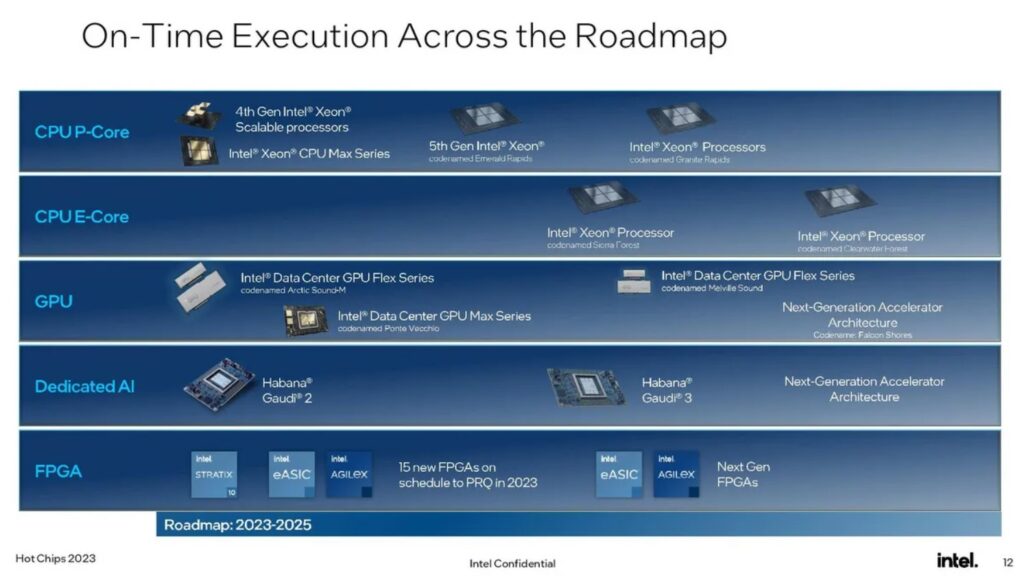

TCL first unveiled its NXTPAPER display back in 2021. The NXTPAPER technology is meant to have the display behave more like actual paper. This means that it will have a paper-like feeling to it. NXTPAPER is an IPS display that does not include a built-in backlight. The company is rolling out the TCL 40 NXTPAPER and TCL 40 NXTPAPER 5G, the first commercial phones with the NXTPAPER display technology.(Android Headlines, Android Authority, Android Central)
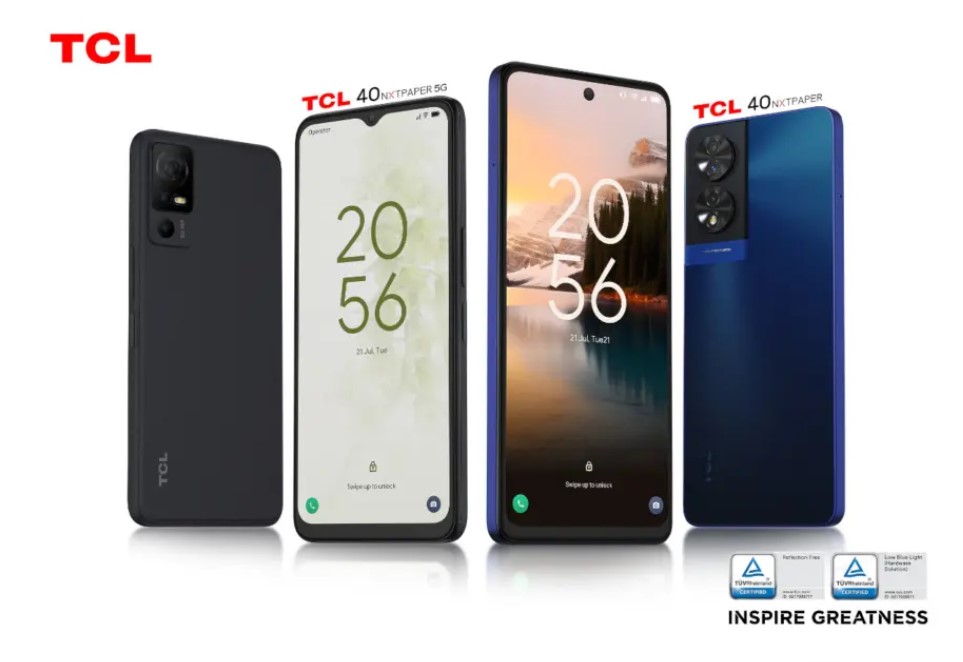
Apple is allegedly testing Vision Pro displays produced by 2 more companies, in addition to Sony, mamely SeeYa Technology and BOE. The complexity of the displays in Apple Vision Pro and the difficulty of manufacturing them in sufficient qualities was said to mean Apple slashed its orders for 2024. Sony has also reportedly refused to increase its production capacity for the screens. BOE and SeeYa are being considered for future models of the Vision Pro, and its lower-cost headset known internally as N109. The current model uses micro OLED technology which is difficult to produce in volume. However, Chinese government has directly supported both BOE and SeeYa in their investment into micro OLED factories, with BOE reportedly receiving USD750M. For its part, SeeYa Technology was founded in 2016 to make micro OLED screens. At that point, it was aiming to produce 20M such displays annually by 2020, and was investing USD275M to do so. (The Information, Apple Insider, MacRumors, CN Beta)
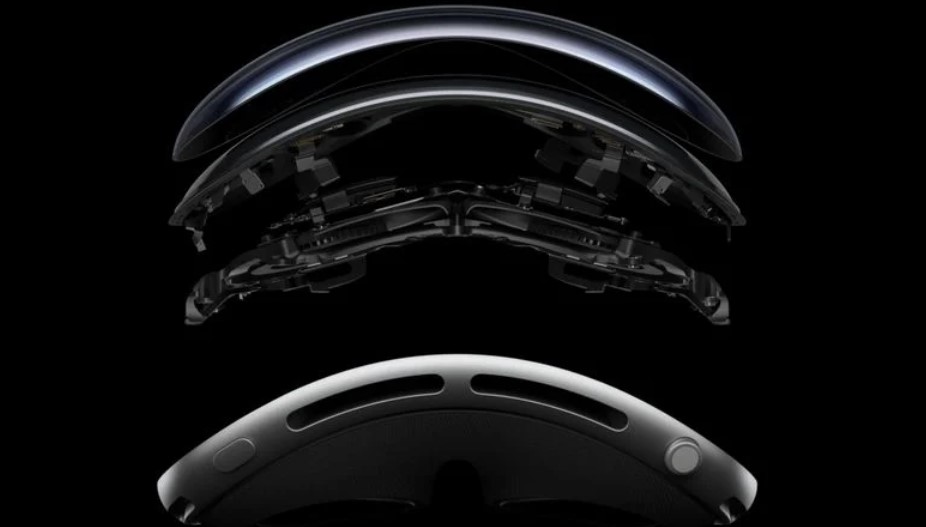
Tecno has showcased a rollable phone Tecno Phantom Ultimate. It expands sideways, increasing the display from 6.55” to 7.11” in 1.2-1.3 seconds. The Phantom Ultimate has a single-drive motor system that expands the device at the press of a button, positioned on the top right side of the phone. When the device is rolled, it is a basic 6.55” smartphone, with the extra screen sitting on the back, acting as an Always-On Display. The panel is a 7.11” On-cell LTPO AMOLED with 2,296 x 1,596 pixel resolution and 388 PPI. It offers 100% DCI-P3 color gamut coverage. The device is 9.93mm thick at its base. (GSM Arena, Phandroid, Android Central)


Samsung Electronics has announced its new flagship UHS-I memory card model “PRO Ultimate” in microSD and full-size SD form factors, enabling professional photographers and content creators to maximize productivity in their creative workflows. The new PRO Ultimate lineup features a capacity of up to 512 gigabytes (GB) and a remarkable sequential read speed of up to 200 megabytes-per-second (MB/s).(CN Beta, Samsung, SamMobile)
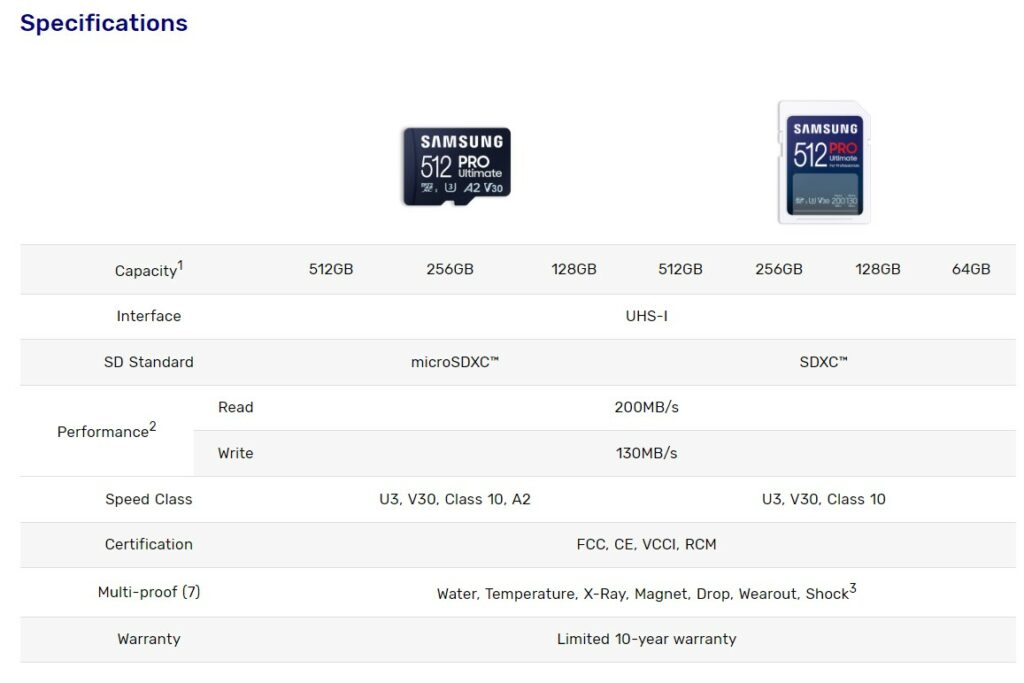

Polestar and Mobileye are to cooperate to make Polestar 4 the first production car to feature Mobileye’s Chauffeur autonomous driving technology – to be integrated by ECARX and with potential application in future Polestar vehicles. Mobileye produces leading advanced driver assistance system (ADAS) technology which is already fitted to over 150M cars worldwide. SuperVision is a camera-based system that runs on Mobileye’s EyeQ5 chips. It includes highway automated driving features like autonomous lane changing, highway and traffic jam assist, evasive maneuver assist, front and rear collision avoidance and adaptive cruise control. (Gizmo China, Mobileye, Polestar, TechCrunch)
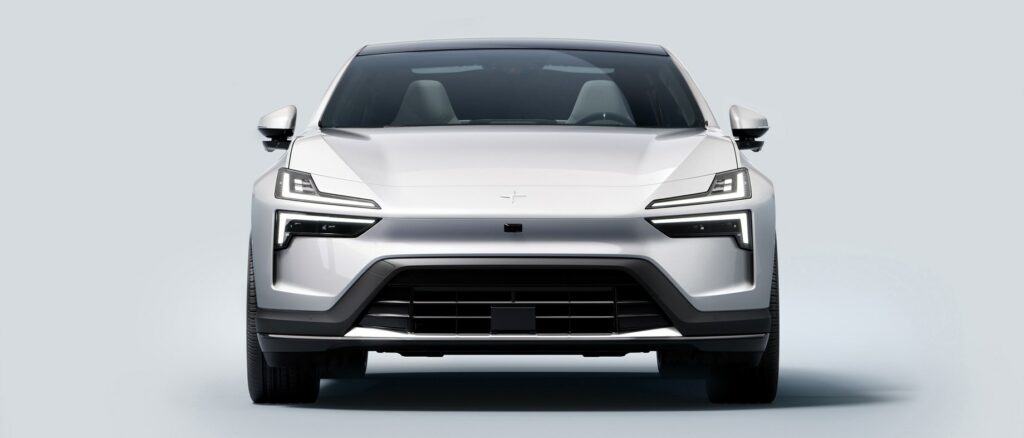

The European Commission has launched an investigation into the license of Chinese power battery giant Contemporary Amperex Technology’s factory in Hungary. That is due to the complaint launched by Jávor Benedek, who is also a former member of the European Parliament, saying that the CATL plant violated the European Union’s groundwater directive, as it severely overused the surrounding underground water by extracting it more than three times faster than its replenishment time. CATL announced in 2022 that it would invest as much as EUR7.3B (USD7.9B) to build the 100-gigawatt battery plant in Debrecen, the largest in Europe. (CN Beta, Yicai Global, Market Screener)


Google is reportedly partnering with Garmin to bring emergency SOS via satellite to Android phones. Some UI placeholders are discovered suggesting that satellite messaging support is coming to Google Messages. Garmin already has multiple satellite communication products, so it would make sense for Google to partner with it and take advantage of its established infrastructure, including emergency response centers for rescue coordination. Garmin’s emergency SOS via satellite services are available in over 150 countries across all 7 continents. (Gizmo China, Phone Arena, Android Authority, Twitter)
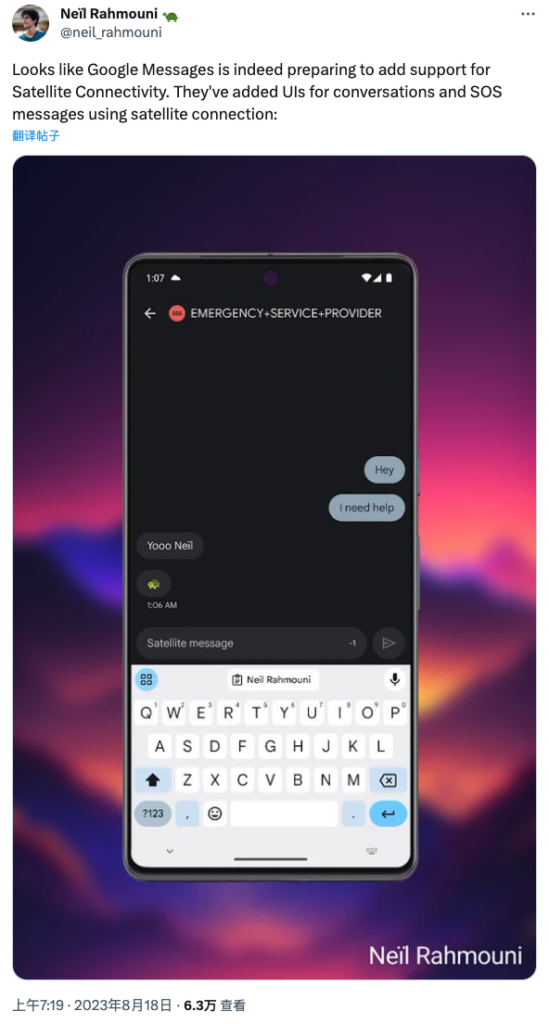

Asus has started launched its Zenfone series since 2014 and has followed up with regular releases reaching a total of 80 devices. Asus is undergoing an organizational restructuring, and reportedly may discontinue its Zenfone series. Asus may move its Zenfone employees to the ROG Phone department. The restructuring process will also unfortunately result in cutting down the number of employees in the PC departments across Taiwan and China. ASUS has urgently issued a statement, pointing out that rumors that ASUS intends to discontinue its mobile phone brand Zenfone series product line are “pure rumors and absolutely not true”.(GSM Arena, Taipei Times, UDN, TechNews)
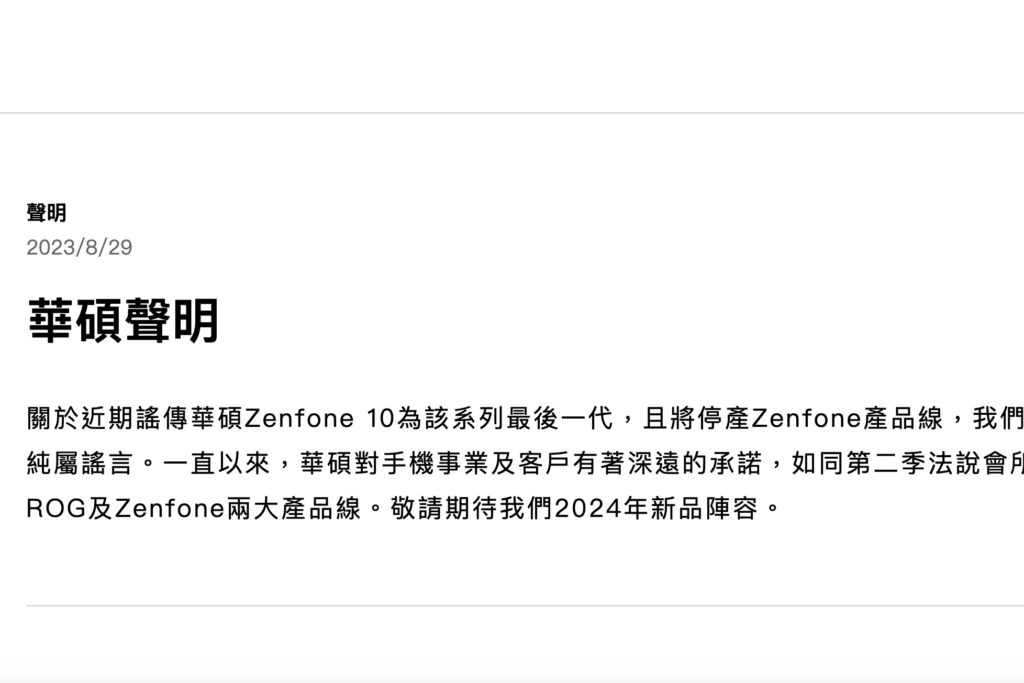
Samsung Electronics has announced the launch of Samsung Food, a personalized, AI-powered food and recipe platform. Releasing in 8 languages in 104 countries around the world, Samsung Food will offer comprehensive food experiences through more than 160,000 available recipes. Building on the foundation of Samsung’s wide range of cooking appliances and food services, Samsung Food uses AI technology to go beyond existing capabilities and deliver a food platform that truly adapts to the needs and lifestyles of its users. To accomplish this, Samsung Food draws from the extensive database of Whisk, a smart food platform acquired by Samsung Next in 2019 that leverages advanced technology called Food AI, which suggests meals based on user preferences and food seasonality.(Engadget, Samsung)

The majority of US iPhone buyers take their business to carriers and forgo Apple’s own stores. Per a report by Consumer Intelligence Research Partners (CIRP), 79% of the people in the States get their iPhone from a carrier – of them 52% go to a store and only 27% do it online. It leaves Apple with just 17% direct iPhone sales, of which 11% are in Apple stores. It makes sense – carriers have thousands of brick-and-mortar locations, while Apple has about 300. (GSM Arena, CIRP)

Apple has gradually been building up its enterprise offering over time, which has resulted in it becoming a presence in many businesses. According to a study conducted by Kandji, the growth in Apple’s usage is down to a number of factors, and that Apple’s ecosystem viewed very positively by those who have to manage enterprise networks. 76% of large enterprises have increased their use of Apple devices in 2022. Furthermore, Apple device use is seen to be growth faster than other alternates in 57% of surveyed businesses. The cost factor is also important, with 56% saying reliability is a main benefit and 53% believing Apple’s generally long lifecycle for hardware is useful too. This is during a period when 86% of the surveyed professionals said their companies were preparing for economic uncertainty. (Apple Insider, Kandji)
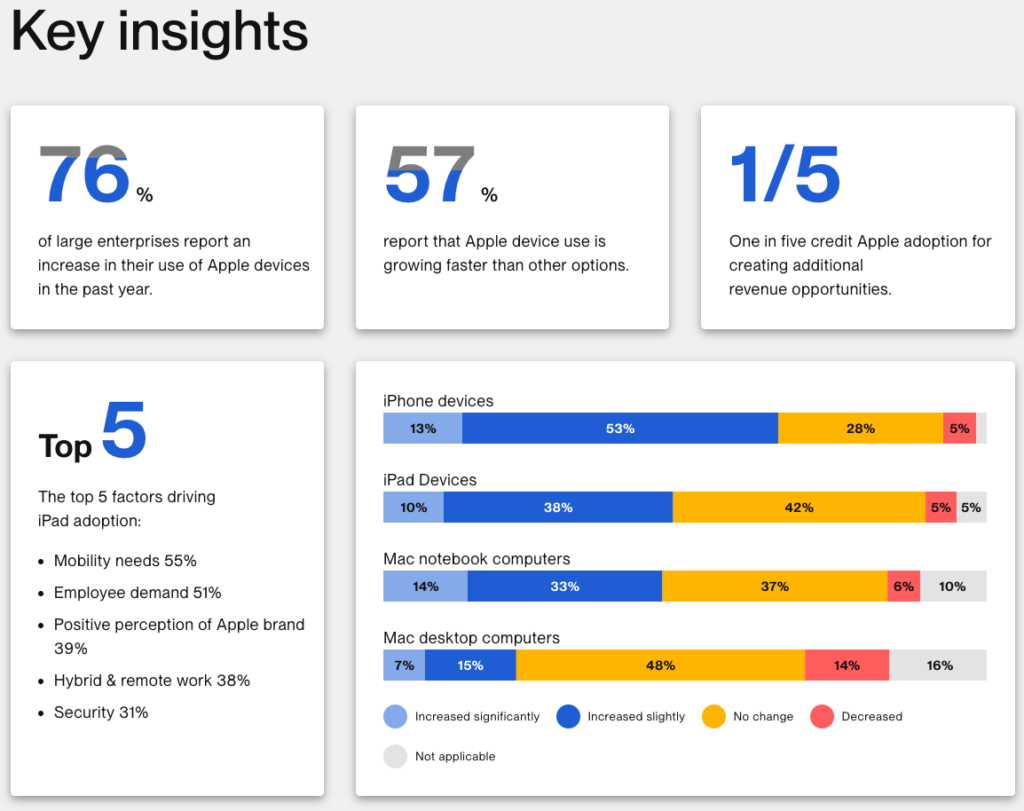

Global smartwatch shipments increased 11% YoY in 2Q23 after declining in both 4Q022 and 1Q23, according to Counterpoint Research. India’s shipments soared by 70% YoY, serving as the primary driver for the global market’s rebound. China’s market also recorded a modest increase. Besides, a shift in the competitive landscape was evident as Huawei ascended to the second position in terms of global market share. Apple saw a 10% YoY decline in its 2Q23 shipments. This decline pushed its shipments to below 8M units for the first time in 3 years. Consequently, Apple’s market share fell to 22% from 27% in 2Q22. (Counterpoint Research, Android Headlines)
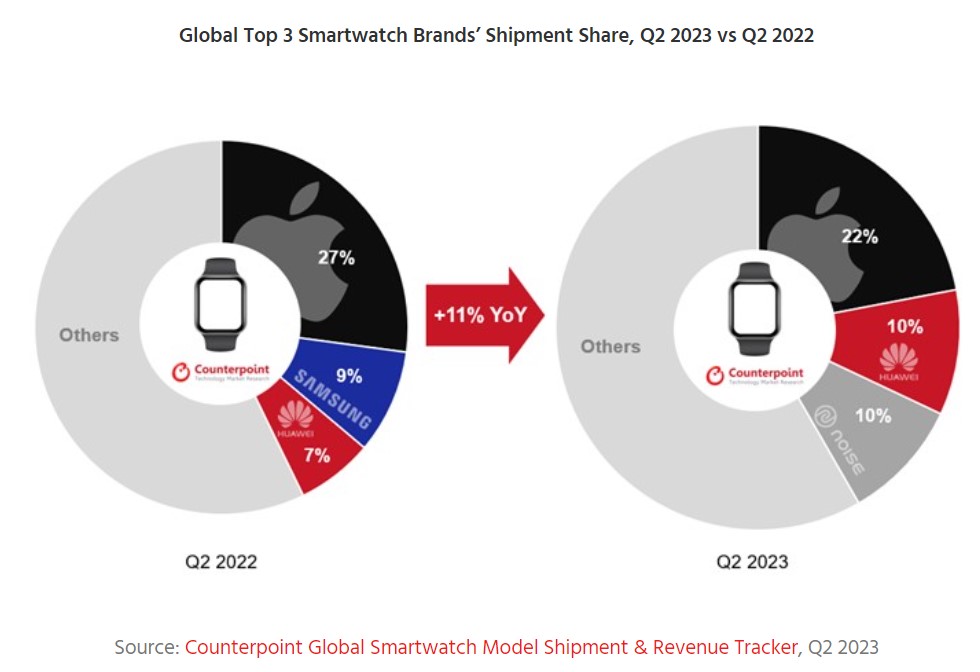
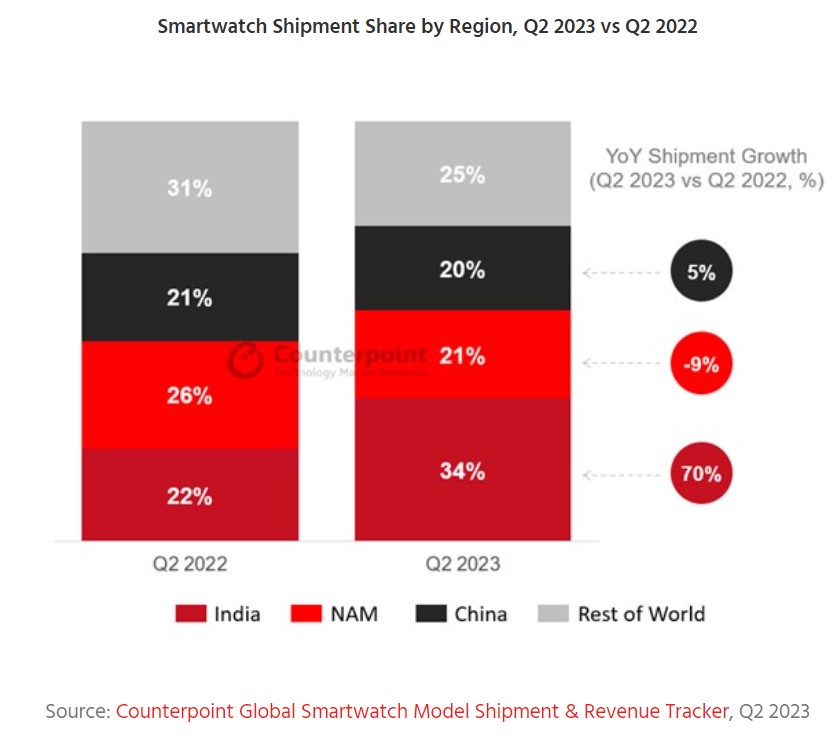

Dolby Labs has a new home theater technology called Dolby Atmos FlexConnect. The company says it will let people with a compatible TV place wireless speakers anywhere that’s convenient, and the TV’s built-in microphones will automatically calibrate them to work with the TV’s speakers while ensuring the whole setup produces optimal sound. The technology will make its debut in a yet-to-be-announced 2024 TCL TV, but Dolby anticipates that other companies will also announce support for Dolby Atmos FlexConnect.(Digital Trends, Ars Technica, Dolby)


Chinese automaker BYD said its electronics unit has struck a deal with U.S.-based manufacturer Jabil to buy its mobile electronics manufacturing business in China for CNY15.8B (USD2.2B). The deal will expand BYD Electronic‘s customer base, product portfolio and its smartphone components business as it looks to capture Jabil’s potential growth in the sector. Singapore-based Jabil Circuit, which manufactures printed circuit boards, established a unit this month that absorbed its product-manufacturing businesses in Chengdu and Wuxi, which will now be sold to the Chinese group.(Gizmo China, Reuters, WSJ, Sohu, My Drivers, Financial Express)
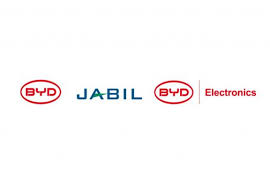
India is reportedly working on a new electric vehicle policy that would slash import taxes for automakers that commit to some local manufacturing, following a proposal by Tesla, which is considering entering the domestic market. The policy being considered could allow automakers to import fully-built EVs into India at a reduced tax as low as 15%, compared to the current 100% that applies to cars which cost above USD40,000 and 70% for the rest. (Gizmo China, Reuters)
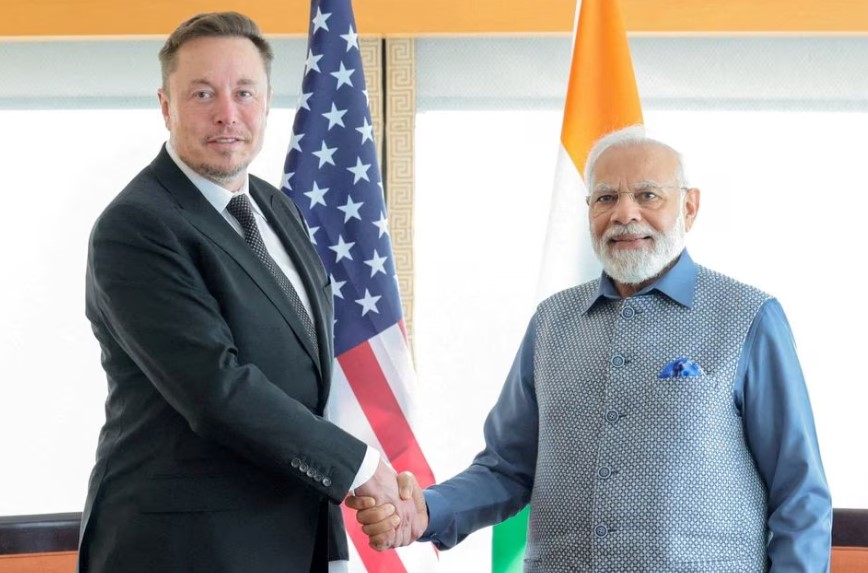

Samsung is expected to reveal SimplyChat, its version of the AI chatbot that will work similarly to OpenAI’s ChatGPT. SimplyChat, which is made by Samsung, will launch with the basic functionality of an AI chatbot. However, Samsung is planning on building it further into a proper hardware configuration. Once the company releases it for the public, it will also start ordering AI servers, with Quanta and Wistron receiving the biggest orders from Samsung.(CN Beta, WCCFTech, UDN)
